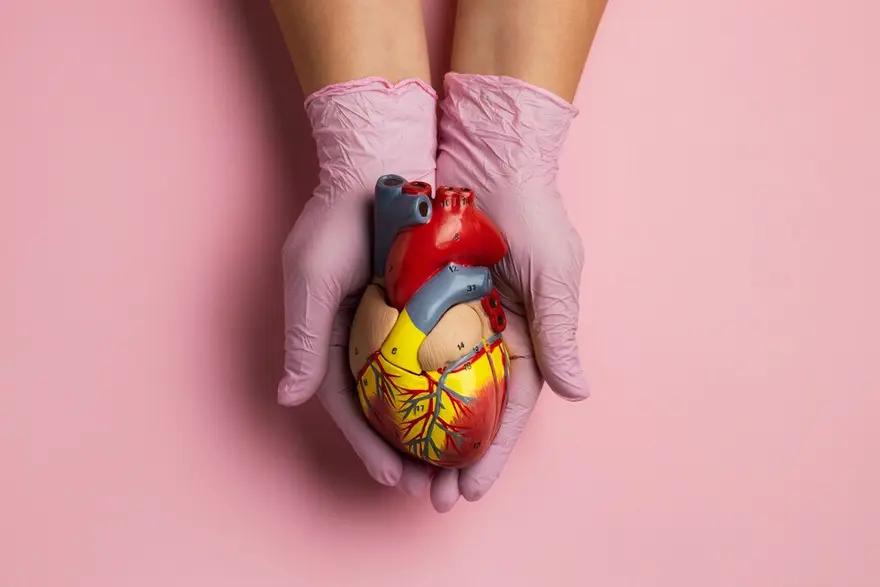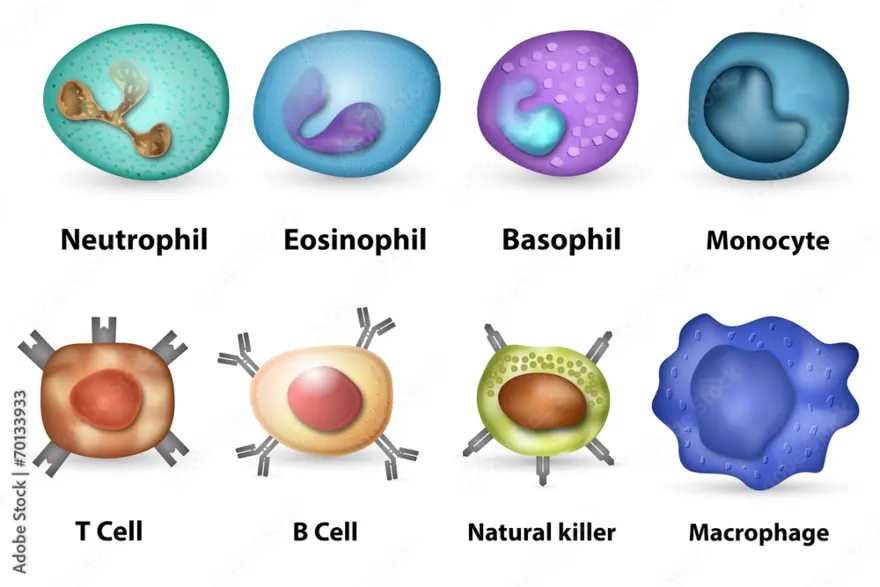calcium supplements
Calcium Supplements and Heart Health: Things You Need To Know
Calcium is essential as it plays a crucial role in the body, especially the skeletal system. Over 99% of the calcium in the body is stored in the teeth and bones, which is why an adult's daily recommended amount of calcium to ensure good bone health is 1000 mg. Most people are used to taking calcium supplements daily, which can also treat conditions like osteoporosis and acid reflux. But there are other ways in which calcium can affect your body. Some studies also claim that too much calcium can be dangerous to your health. How Does Calcium Affect the Heart? Calcium can enter your muscle cells with every heartbeat, and it helps coordinate the heart's electrical signals and how fast it beats. Calcium also helps the heart contract and pump blood throughout the body. It is also believed to be involved in helping all of the muscles of the body contract. Any abnormal calcium levels in the blood can cause abnormal electrical signals that, in turn, lead to irregular heartbeats or arrhythmia. Can Calcium Cause Heart Problems? Many researchers have raised concerns about calcium supplements increasing the risk of heart problems such as heart attacks. Some even believe that taking higher amounts of calcium can result in the calcification of blood vessels in the heart. Calcification of blood vessels, also called vascular classification, can occur when minerals like calcium build up on the walls of the arteries and veins. Even blood vessels in the heart are at risk of this condition. Vascular classification can block the regular flow of blood to the heart resulting in cardiovascular diseases. Vascular calcification can be a sign of atherosclerosis, a condition in which fatty deposits or plaque build up on the inner walls of the arteries. Atherosclerosis increases your risk of strokes, heart attacks, and even death. How is the risk of excessive calcium consumption different in men and women? Women who take calcium supplements can be at a higher risk of developing heart problems compared to men. One large study showed that post-menopausal women are at a higher risk of heart disease if they take around 1000 mg of calcium supplements daily, and this risk was even higher in women who get about 700 to 1000 mg of calcium from their diet. A different study showed that post-menopausal women who combined their calcium supplements with vitamin D supplements did not show a rise in the risk of heart attacks. It is important to note that these studies were not aimed at studying the supplement's effect on heart disease and were evaluating the benefits of calcium supplements for fracture risk. Who Should be Careful About Taking Calcium Supplements? While there is no clear evidence yet about whether or not calcium supplements can raise the risk of heart disease, you should try and get the calcium you need from food sources. In these cases, the doctor’s advice should be considered. Individuals who show low calcium levels in the blood or those with conditions like osteoporosis need to follow the dosage the doctor recommends religiously. It is also essential for you to talk to your healthcare professional before starting any supplements, including calcium. Most doctors recommend calcium acetate to help lower phosphorus levels if your kidneys are not functioning normally. In this case, taking only the prescribed dosage and nothing more is essential. Taking excess calcium could result in calcium bonding with phosphorus and getting deposited in your blood vessels. A doctor will provide you with the proper amount of calcium supplements you need based on age and lifestyle. A common cause of kidney stones is combining oxygen and oxalate in the urine. Oxalate is a natural substance found in foods that can cause the formation of crystals in the urine. While calcium supplements raise the chance of calcium combining with oxalate, it is important to include natural forms of calcium in your diet as it also has a role in preventing kidney stones. Is Taking Calcium Supplements Advisable If You Have a History of Heart Disease? As mentioned earlier, we are sure that calcium plays a vital role in the body's daily functioning, but its like with heart disease is still not understood. Healthy individuals who do not show low calcium levels or other bone and tooth-related diseases should try incorporating more sources of calcium into their diet. Whatever you do, it is essential first to consult your family physician as too much of a good thing, aka calcium, can also sometimes lead to serious side effects in the body. Conclusion As research related to calcium and heart health has not reached as far as we had hoped, it is essential to know the side effects of overconsumption of calcium and how to identify them. Regular blood tests and analyses can help you track your calcium levels in the blood and inform you when levels are higher than normal and vice versa. You can also find other calcium tests for heart health if your doctor suspects you have developed calcification in your blood vessels or heart. Whether the test displays more elevated levels of calcium or lower amounts, it is essential to discuss the steps you need to take to bring it back to normal with your healthcare provider. Metropolis Labs has a wide array of diagnostic tests available that can be found here. We are a premium diagnostic service with a chain of diagnostic labs across India to provide our customers with health check-ups and blood testing services. Our team of qualified blood collection technicians make home visits to collect your blood samples so you are comfortable in your space. The sample is then sent to the closest advanced diagnostic lab for testing. With minimal turnaround time, we also offer our customers the option to view their results on the Metropolis TruHealth app or via email. Contact us today for more information about our services.
How to get Enough Calcium to Support Bone and Dental Health?
Calcium is one of the most significant minerals for your body. While calcium is needed for various body processes, it is pivotal to maintain healthy teeth and bones. Almost all calcium in the body is stored in bones and teeth. Bones form the backbone for your musculo-skeletal system, and without teeth, you will not be able to relish your favorite cuisines or win hearts with that cheerful smile. What else do you need calcium for? The body requires calcium for your muscles to move and for nerves to carry messages to and fro between your brain and other body parts. Not just this, blood vessels move blood throughout your body with the help of calcium. It also plays a role in the release of certain hormones that impact many functions in your body. Sure you have enough calcium reserves? Book a test and know for yourself. Calcium for bone and dental health Not getting enough calcium has been linked with reduced bone mass and increased risk of bone fracture. The outermost surface of the tooth, called the tooth enamel, is majorly made up of calcium phosphate molecules called hydroxyapatite. It is the hardest tissue in the body- even harder than the bone. It protects your teeth against erosion, decay and grinding pressures. How does the body maintain blood calcium levels? Calcium circulation in the blood is stringently regulated at any given time. Your body maintains the equilibrium by an efficient interplay of calcium absorbed (through the intestines), calcium mobilized (into and out of the bones and teeth), and calcium excreted (through the kidneys into the urine). If the level of calcium in your blood drops, a gland called parathyroid glands releases a hormone called PTH (parathyroid hormone) into the blood. PTH has calcium regulating properties. It signals cells in bone to release calcium from the bone surfaces. It also triggers the kidney to reclaim more calcium before it is taken out in the urine. All of these make up for the lack of calcium in the blood. However, think of a situation where your body is dealing with a lack of calcium continuously, this may cause release of excessive calcium from your bones and teeth. Eventually, weakening your bones and teeth. How can I get enough calcium naturally? Your body cannot produce calcium. It needs to be taken through natural sources or calcium supplements. Here is a quick list of natural sources of calcium: Curd, Yogurt Milk Sardines and salmon Cheese Tofu Green leafy vegetables, such as broccoli, spinach, turnip leaves Nuts and seeds, especially almonds, sesame, and chia Legumes and grains Fortified alternatives like fortified soy milk, fortified fruit juices, etc. You should aim to get most of your daily nutrient intake from food and beverages, according to the health experts. These foods not only give you calcium but also contain vitamins, other minerals, and abundance of fiber that benefit health. However, if it is difficult to meet daily calcium demands through food, opt for fortified foods and calcium supplements What happens if I don’t get enough calcium? Lack of calcium can result into various bone and teeth related conditions like- Osteoporosis: A condition that causes weak, fragile bones and increases the risk of falling Rickets: A disease in children that results into softer, weaker bones Osteomalacia: The bone softening disease in adults is called osteomalacia. Who can be at risk of having low calcium? Anyone not getting enough calcium through diet can develop calcium deficiency. However, some specific group of people are more likely than others to have enough calcium levels, including: Women after menopause: The body absorbs and retains less calcium after menopause (permanent cessation of periods in women that occurs with age). This makes the bones fragile. People who don’t drink milk or eat other dairy products: Dairy products such as milk, paneer, curd are rich sources of calcium. However, people who are intolerant to lactose (milk sugar), have allergies to milk, or choose a vegan diet lose on the rich calcium source. They must look out for other sources of calcium like lactose-free dairy products, canned fish with bones, certain green leafy vegetables or calcium supplements as suggested by your doctor. Who should consider calcium supplements? If you have got your full body check up or calcium test done and found yourself deficient in calcium, it is pivotal to increase calcium intake and seek expert guidance if you need supplements. At large, calcium supplements may be needed by people who follow a vegan diet, do not have enough dairy products, are getting long-term treatment with corticosteroids, and have certain digestive conditions that disrupt calcium absorption. Calcium supplements are available in many forms and combinations like calcium citrate, calcium carbonate, and along with vitamin D and other minerals. Talk with your doctor or dietitian about which calcium supplement is right for you. A few people may experience gastric upset with supplements. Take your dose with food to reduce the occurrence or intensity of any side effects.
 Home Visit
Home Visit Upload
Upload
















 WhatsApp
WhatsApp